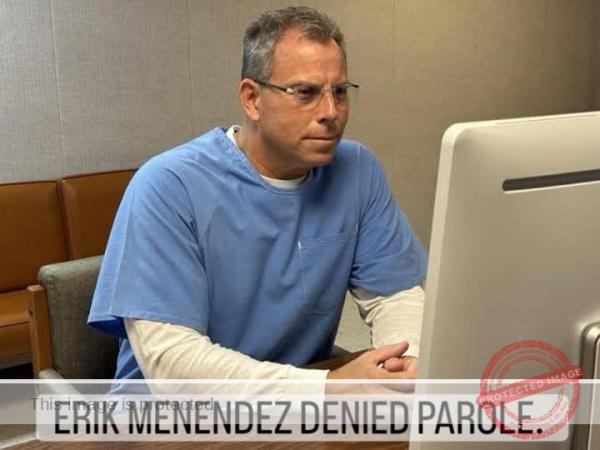CALIFORNIA – Erik Menendez, one of the two brothers convicted in the infamous 1989 case involving the deaths of Jose and Kitty Menendez, has been denied parole despite being eligible after recent sentencing reforms. The ruling ensures he will remain incarcerated for several more years.
The parole hearing lasted an entire day, during which California commissioners carefully reviewed Erik’s prison record, conduct, and rehabilitation progress. Ultimately, they determined he should not be released at this time. Authorities announced that his next opportunity for parole consideration will not come until 2028.
Commissioners cited his prison behavior as a key reason for the decision, noting that certain incidents raised questions about his readiness for reintegration into society. While some family members expressed support for his release, the board stressed that its ruling was based on institutional factors rather than the severity of the original crime.
Now in his 50s, Erik Menendez has been serving his sentence since his 1995 conviction alongside his older brother, Lyle Menendez. The two were found guilty of first-degree murder for the fatal shootings of their parents inside their Beverly Hills home. The case became one of the most widely covered trials of the 1990s.
At trial, the brothers testified that they endured years of abuse at the hands of their parents. Their claims divided the nation, sparking debate over whether their actions stemmed from trauma or whether they had been motivated by financial gain. Ultimately, jurors found them guilty, sentencing both men to life in prison without parole.
In later years, California sentencing reforms offered a pathway for parole eligibility to inmates who had been given lengthy sentences as young adults. Erik Menendez became eligible under those changes, leading to this week’s parole hearing. The denial, however, shows that eligibility does not guarantee release.
The timeline of the case remains a stark reminder of its impact. In 1989, Jose and Kitty Menendez were killed in their home. By 1995, both sons were convicted and sent to prison for life. In 2025, parole eligibility arrived for Erik, only for his request to be rejected.
Public opinion continues to be sharply divided. Some believe the brothers, having served more than three decades behind bars, deserve an opportunity for release. Others argue the brutality of the crime makes them unfit for freedom, regardless of any claims of abuse or rehabilitation. Online debates highlight the enduring fascination with the case.
Following the denial, Commissioner Robert Barton explained that the decision was not based solely on the crime’s details but primarily on Erik’s conduct during his incarceration. Meanwhile, Erik’s brother, Lyle Menendez, is scheduled for his own parole hearing on Friday, which is expected to draw similar levels of public scrutiny.
The Menendez brothers’ case continues to stand as one of the most notorious chapters in American criminal history. More than three decades later, the story is still evolving, and the next developments will determine whether either brother is ever allowed to reenter society.
Would you like me to also prepare 8 optimized social-media headlines for this story—similar to what I’ve done for the other cases—to maximize engagement on Facebook and news platforms?
